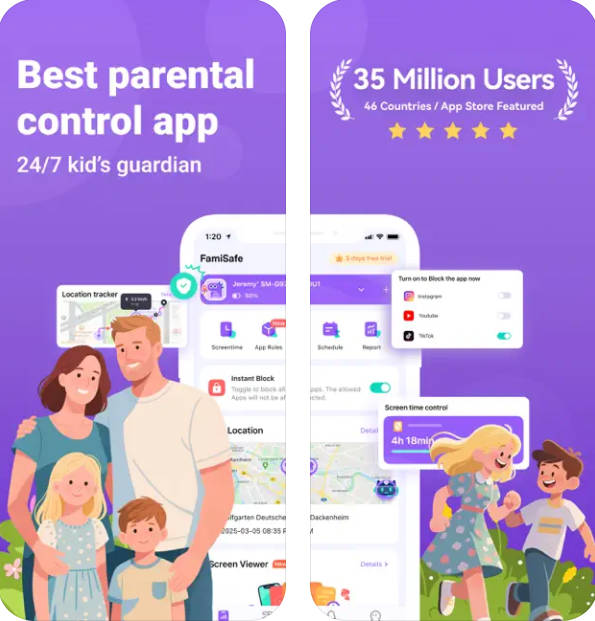It’s a moment every parent dreads. You glance at your teen’s phone screen and see a word you don’t recognize in a message: ‘yayo.’ It doesn’t look like a normal typo. A knot of unease tightens in your stomach. Is it harmless slang? An inside joke? Or is it something more?
This feeling of being on the outside of your child’s world is unsettling, especially when their safety is your top priority. The truth is, teen slang evolves at lightning speed, creating a coded language that can feel impenetrable. But understanding this language isn't about invading their privacy; it's about being equipped to protect them. Uncovering the yayo meaning is a critical first step for any parent looking to navigate the complexities of today's digital world and keep the lines of communication open.

In This Article
Part 1. What Does 'Yayo' Mean?
Let's cut straight to the chase: 'Yayo' is a common slang term for cocaine. While it might sound playful or exotic, its meaning is tied directly to the dangerous world of illegal narcotics. Seeing or hearing this term is not something to be dismissed. It’s a significant red flag that warrants your immediate and calm attention.
The power of this word lies in its secrecy. By demystifying the yayo slang meaning, you remove its covert power and arm yourself with the knowledge needed to recognize a potentially dangerous situation. It’s not just a random collection of letters; it’s a word with a specific history and a modern application that every parent needs to understand.
The Scarface Connection and Pop Culture Influence
So, where did this strange word come from? The yayo meaning slang originates from a specific cultural touchstone: the 1983 blockbuster film Scarface. The main character, a Cuban refugee named Tony Montana who becomes a powerful drug lord, refers to cocaine as 'yayo' (sometimes spelled 'yeyo'). This is a Spanish slang term, and the film’s immense cultural impact burned it into the public consciousness.
Pop culture then acted as an amplifier. Hip-hop artists, who often draw on the themes and imagery of films like Scarface, adopted the term. The most prominent example is rapper Tony Yayo, a member of the group G-Unit, whose stage name further cemented the word’s association with street culture and, by extension, drugs. This cultural footprint gives the term a certain "edge" or "cool factor" that can be appealing to teens looking to seem rebellious or in-the-know.
'Yayo' in Modern Texting and Social Media
Fast forward to today, and you’ll find ‘yayo’ thriving in the digital spaces our teens inhabit. It’s used in text messages, on social media platforms like TikTok and Instagram, and in private chat groups. Its primary function is to act as a code word. Teens (and dealers) use it to talk about cocaine without triggering keyword filters on social media apps or alerting parents who might be monitoring their conversations.
When you see the word ‘yayo,’ you are seeing a deliberate attempt to hide something. The user knows what it means and is choosing it over the actual word ‘cocaine’ for a reason. Understanding what does yayo mean is the first step in seeing past the code and recognizing the reality of the conversation.
Part 2. More Than Just 'Yayo': Common Drug Slang Parents Should Know
'Yayo' is a critical term to know, but it’s just the tip of the iceberg. The world of drug slang is vast and constantly changing, often using innocent-sounding words to refer to dangerous substances. If you're only looking for one word, you might miss dozens of others. Building a broader "slang radar" is essential for detecting drug slang in teen texts.
Knowing these drug slangs can help you identify patterns and understand the context of a conversation, rather than just reacting to a single word.
A Glossary of Modern Drug Slang
The Role of Emojis in Secretive Communication
Today’s teens communicate visually, and their coded language has evolved to include emojis. An emoji can convey a complex idea in a single character, making it fast, subtle, and much harder for parents or algorithms to flag. To a casual observer, a string of emojis might look like nonsense, but to those in the know, it’s a clear message.
Here are some of the most common drug slang emojis parents should know:
- Cocaine (or 'Yayo'): ❄️ (Snowflake), ⛄ (Snowman), 🎱 (8-Ball), 🤧 (Sneeze/Sniffle)
- Prescription Pills: 💊 (Pill), 🍫 (Chocolate Bar, for Xanax bars), 🅿️ (Percocet)
- Marijuana: 🍁 (Maple Leaf), 🌲 (Evergreen Tree), 💨 (Puff of Smoke)
- MDMA (Molly/Ecstasy): ❤️ (Heart), ⚡ (Lightning Bolt), 🍬 (Candy)
- Dealer/Plug: 🔌 (Electric Plug)
Recognizing these emojis is like learning a new, secret alphabet. It’s another layer of the coded world that you need to be able to decipher to keep your child safe.
Part 3. Why It's Crucial for Parents to Understand Teen Slang
At this point, you might be feeling overwhelmed. The lists are long, the terms are sneaky, and it feels like an impossible code to crack. But here’s the most important takeaway: this knowledge is not meant to turn you into a detective or a spy. It’s meant to turn you into an informed, prepared, and proactive parent.
Understanding the signs your teen is using drug slang is about safety and connection. It’s about knowing when a line has been crossed and when you need to step in to have a difficult but potentially life-saving conversation.
Protecting Your Child from Online and Offline Dangers
When you understand the slang, you can spot risks before they escalate. A conversation about 'yayo' isn't just a chat about drugs; it could be a teen arranging to buy them. A message mentioning a 'plug' 🔌 isn't just an emoji; it's a direct line to a drug dealer.
Early awareness allows for early intervention. It gives you the chance to talk to your child about the real-world dangers of substance abuse, peer pressure, and the people who profit from it. You can address the issue from a place of concern and love, rather than finding out after a crisis has already occurred. In addition to drug slang, it is also important to be aware of the explicit slang teens use, as it can also be an indicator of risky behavior or negative influences.
How FamiSafe Can Help Bridge the Communication Gap
Let's be honest: it’s impossible to keep up with every new slang term or emoji. And manually checking your child’s phone every day isn't practical or healthy for your relationship. It can feel like you have to choose between respecting their privacy and ensuring their safety. But what if you didn’t have to?
This is where a tool like FamiSafe can serve as a crucial safety net. Instead of forcing you to become a full-time digital detective, FamiSafe empowers you to monitor for specific risks smartly and discreetly. The key is its Content Detection feature. You can create a custom list of keywords and slang terms you’re concerned about—words like ‘yayo,’ ‘molly,’ ‘plug,’ or even specific emojis like 🔌 and ❄️.
FamiSafe will then scan for these specific terms in your child’s text messages, social media chats, and YouTube searches. If one of your chosen keywords is detected, you receive an immediate alert. This approach offers the best of both worlds. You aren't reading every single one of their conversations, which respects their privacy and personal space. But you are alerted to the red flags that genuinely require your attention, allowing you to know exactly when it’s time to step in and have a conversation.

Try FamiSafe, Get Real-Time Alerts on Risky Slang.
Conclusion
The digital world has added a new layer of complexity to parenting. Words like ‘yayo’ and coded emojis are designed to keep you in the dark. But now, you have the knowledge to turn the lights on. You know that the yayo meaning is cocaine, you understand its pop culture roots, and you’re aware of the broader universe of drug slang that teens use to communicate.
Knowledge is your most powerful tool for prevention. It allows you to transform moments of fear and uncertainty into opportunities for connection and guidance. Use this knowledge to foster an environment of open, non-judgmental communication with your teen. Let them know you’re a safe person to talk to about the pressures they face.
And for those times when you need an extra layer of security, consider supportive tools like FamiSafe. It can act as your digital eyes and ears, giving you peace of mind and alerting you when your intervention is needed most. By staying informed and connected, you can confidently guide your child through their teenage years, both online and off.


